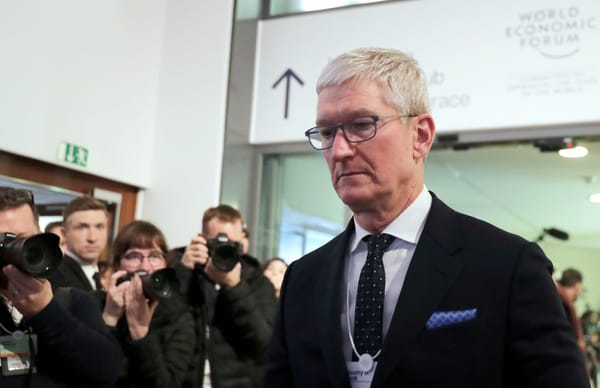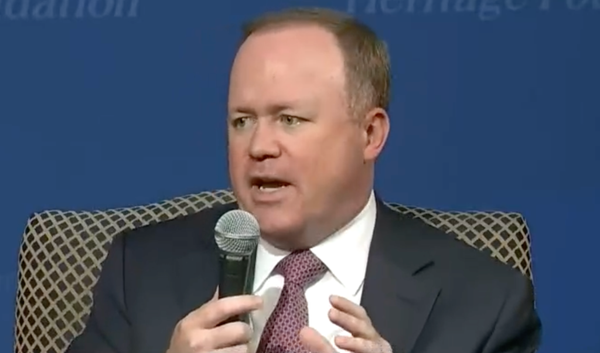Panel Disagrees on Antitrust Bills’ Promotion of Competition
Panelists disagree on the effects of two antitrust bills intended to promote competition.
Teralyn Whipple

WASHINGTON, March 10, 2023 – In a fiery debate Thursday, panelists at Broadband Breakfast’s Big Tech and Speech Summit disagreed on the effect of bills intended to promote competition and innovation in the Big Tech platform space, particularly for search engines.
One such innovation is new artificial intelligence technology being designed to pull everything a user searches for into a single page, said Cheyenne Hunt-Majer, big tech accountability advocate with Public Citizen. It is built to keep users on the site and will drastically change competition in the search engine space, she said, touting the advancement of two bills currently awaiting Senate vote.

Photo of Adam Kovacevich of Chamber of Progress, Berin Szoka of TechFreedom, Cheyenne Hunt-Majer of Public Citizen, Sacha Haworth of Tech Oversight Project, Christine Bannan of Proton (left to right)
The first, the American Innovation and Choice Online Act, would prohibit tech companies from self-preferencing their own products on their platforms over third-party competition. The second, the Open App Markets Act, would prevent app stores from requiring private app developers to use the app stores’ in-app payment system.
Hunt-Majer said she believes that the bills would benefit consumers by kindling more innovation in big tech. “Perfect should not be the enemy of change,” she said, claiming that Congress must start somewhere, even if the bills are not perfect.
“We are seeing a jump ahead in a woefully unprepared system to face these issues and the issues it is going to pose for a healthy market of competition and innovation,” said Hunt-Majer.
It is good for consumers to be able to find other ways to search that Google isn’t currently providing, agreed Christine Bannan, U.S. public policy manager at privacy-focused email service Proton. The fundamental goal of these bills is directly at odds with big companies, which suggests its importance to curb anti-competitive behavior, she said.
No need to rewrite or draft new laws for competition
But while Berin Szoka, president of non-profit technology organization TechFreedom, said competition concerns are valid, the Federal Trade Commission is best equipped to deal with disputes without the need to rewrite or draft new laws. Congress must legislate carefully to avoid unintended consequences that fundamentally harm businesses and no legislation has done so to date, he said.
Both bills have broad anti-discrimination provisions which will affect Big Tech partnerships, Szoka continued.
Not all experts believe that AI will replace search engines, however. Google has already adopted specialized search results that directly answer search queries, such as math problems, instead of resulting in several links to related webpages, said Adam Kovacevich, CEO of Chamber of Progress, a center-left tech policy coalition.
Kovacevich said he believes that some search queries demand direct answers while others demand a wide range of sources, answers, and opinions. He predicts that there will be a market for both AI and traditional search engines like Google.
 Broadband BreakfastBroadband Breakfast
Broadband BreakfastBroadband Breakfast








Member discussion